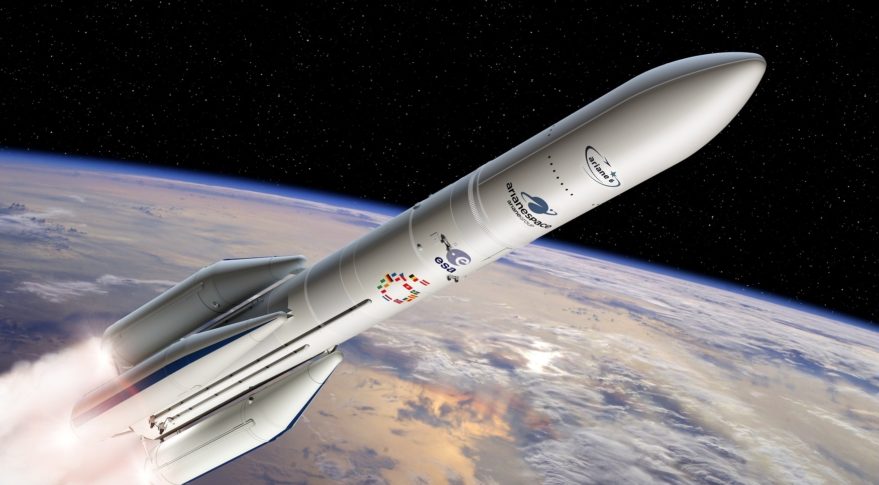
PARIS — An agreement among three European countries could help secure near-term funding for launch vehicle development but have a bigger effect in the long term on how future projects are financed.
The governments of France, Germany and Italy announced Nov. 22 they signed an agreement on “the future of launcher exploitation in Europe” intended, they said, to enhance competitiveness of European vehicles while also ensuring independent European access to space.
The agreement includes a timetable that, by June 2024, calls for a new framework to be in place for public financing of vehicles such as the Ariane 6 and Vega C. That includes “a mechanism incentivizing cost reduction” with funding “commensurate to the commercial risks taken” and ability to achieve target prices.
The agreement also endorses having new small launch vehicles under development by several European companies be able to compete for European Space Agency missions. That’s considered a priority for Germany in particular, which has supported development of commercial small launch vehicles.
The agreement coincides with the ongoing ESA ministerial meeting where member states will allocate funding for projects, including launch vehicle development. ESA is seeking a little more than 3 billion euros ($3.1 billion) for space transportation overall, including 600 million euros for an Ariane 6 “transition program” as the long-delayed rocket, whose first flight has slipped to at least late 2023, enters service.
The program has secured two-thirds of its funding going into the ministerial, but faced a gap of 195 million euros as the meeting started. ESA Director General Josef Aschbacher, speaking to reporters at the end of the first day of the ministerial council meeting Nov. 22, said he was optimistic the agreement announced by France, Germany and Italy would help close that gap.
“This was quite important because this political understanding and agreement unblocks other discussions that then have an influence on subscriptions,” he said. “That was quite important and significant, and opened the door for a discussion later on.”
However, as of late Nov. 22 that funding gap was not yet closed, according to a source familiar with the negotiations. That was, the source added, to be expected given the nature of negotiations, including the iterative process where countries revise their funding commitments over several rounds.
The agreement will help close that funding gap, the source said, because it united France, Germany and Italy around support for both Ariane 6 and Vega C as well as future launch systems, creating interdependence among the countries given differing priorities. Any long-term agreement requires success in securing funding for launch programs at the ministerial.
However, the agreement appeared to open the door to revisit a long-standing ESA principle of “georeturn,” or apportioning contracts based on the share each country contributes to agency programs. Some larger countries have been critical of georeturn, arguing it makes programs less efficient.
The document stated that, as part of the new launcher framework, “such exercise would involve starting a reflection with concerned states on the conditions for the industrial and geographical distribution of work in exploitation.”
A statement from the French economic ministry was more blunt, stating that competitiveness would be achieved in part by a change in the rules for geographic return.
Any change, an agency source said, would be a long-term effort, and require the approval of ESA’s 22 member states, which would not be easy. The rules for Ariane 6 and Vega C in particular were set at the beginning of those programs year ago, although the source said that the georeturn issue could be examined for future launch vehicle development projects.
There is other pressure on ESA to reform its support of launch vehicle development. “There is no European space policy without autonomous access to space,” said Thierry Breton, European Union commissioner for the internal market, in comments at the opening session of the ministerial meeting Nov. 22.
“The shortage of autonomous launch capacity in the E.U. has a direct impact on the deployment of E.U. space programs like Galileo,” he said, referring to the ongoing pause in launching Galileo satellites because the Soyuz rocket is no longer available and Ariane 6 is delayed. “The situation is not sustainable for long, and there is an urgent need to remedy the situation through a truly European approach to have a fully autonomous, reliable and cost-effective E.U. launch solution, including, of course, backups covering all ranges of launchers.”
Breton said he expected ESA member states to back “sustained financing” of Ariane 6 and Vega C and work on future launch systems. The E.U., he said, “is definitely ready to support all these efforts, and it will.”